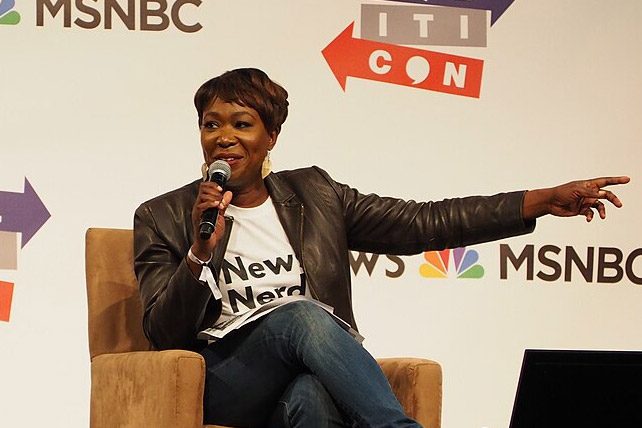Joy-Ann Reid, also known as Joy Reid, is an American television host and political commentator. She is best known for hosting the MSNBC cable television show “The ReidOut,” which is a weeknight evening news and opinion show. Reid has become a known figure in political journalism, recognized for her forthright and informed commentary on politics, current affairs, and issues pertaining to social justice and race.
Joy Reid: How the Early Years Helped Shape Her Success
Born on December 8, 1968, Reid graduated from Harvard University, where she studied film. Her journalism career began in Florida, where she worked in local television and radio. She went on to write a book about the politics surrounding the election of Barack Obama and another on the wake of the Trump Presidency in regard to the American political landscape.
Prior to hosting “The ReidOut,” Reid was the host of another MSNBC show called “AM Joy.” She has also worked as a national correspondent for MSNBC and has been a political commentator on both television and in her writing, including columns for The Daily Beast.
Reid’s work has earned praise for her sharp analysis and dedication to covering complex stories, particularly those affecting underrepresented communities. She’s known for her willingness to tackle difficult conversations and her ability to articulate perspectives that challenge viewers and readers to consider different angles on political and social issues.
Joy Reid is also notable for being one of the few Black women to anchor a major American news program during the evening hours, cementing her role as an influential voice in political media. Her perspective is particularly appreciated among audiences looking for nuanced takes on the intersection of politics and race in America.
Throughout her career, Reid has been involved in several controversies, most notably involving statements she made on a now-defunct blog. Despite these controversies, she remains a prominent media figure, particularly in progressive and Democratic circles. Reid is also active on social media, engaging with audiences on platforms like Twitter, where she often shares her thoughts on the political news of the day.
In the dynamic and often contentious realm of political commentary, media figures like Joy Reid offer perspectives that can sometimes lead to disputes with viewers or advocacy groups, as evidenced by the recent call from a Catholic advocacy group for an apology from MSNBC. Bill Donohue, president of the Catholic League for Religious and Civil Rights, addressed a letter to MSNBC and Comcast executives expressing concern over comments made by Reid that were regarded as disparaging towards Christians.
Context of Controversy in Joy Reid’s Career
During coverage of the Iowa caucuses, Joy Reid remarked on the high representation of “white Christians” within the state and their influence on the presidential nominating process. Her comments reflected statistics comparing the demographic profile of Iowa to the nation as a whole.
Implications of Demographic Representation
Reid’s observation about Iowa’s demographic makeup as “overrepresented by white Christians” aimed to highlight discrepancies between the Iowa caucus electorate and the broader national population. Reid’s commentary suggested implications for political representativeness and the potential impact on the outcome of the caucuses and, by extension, American electoral politics.
Dialogue on Evangelical Christians and Political Affiliations
Further, Reid’s discussion with Robby Jones of the Public Religion Research Institute explored the motivations of white Evangelical Christians who support certain political figures, like former President Donald Trump. According to the researcher’s comments as recited by Reid, this demographic views themselves as the rightful inheritors of America’s promise and appreciates assurances to preserve their vision of the country’s identity.

